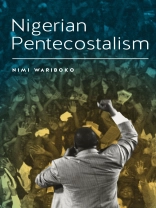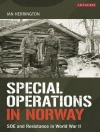Presents a multidisciplinary study of how Nigerian pentecostals conceive of and engage with a spirit-filled world, arguing that the character of the movement is defined through an underlying ‘spell of the invisible.’
This book presents a multidisciplinary study of how Nigerian Pentecostals conceive of and engage with a spirit-filled world. It seeks to discern the spirituality of the charismatic religious movement in Nigeria in relation to issues of politics, national sovereignty, economic development, culture, racial identity, gender, social ethics, and epistemology. Nimi Wariboko describes the faith’s core beliefs and practices, revealing a ‘spell of the invisible’ that defines not only the character of the movement but also believers’ ways of seeing, being, and doing. Written by an insider to the tradition,
Nigerian Pentecostalism will also engage outsiders with an interest in criticalsocial theory, political theory, and philosophy.
Nimi Wariboko is the Katherine B. Stuart Professor of Christian Ethics at Andover Newton Theological School, Newton, Massachusetts.
表中的内容
Introduction
Sources of Nigerian Pentecostalism
The Spell of the Invisible
Excremental Visions in Postcolonial Pentecostalism
Desire and Disgust: Ways of Being for God
The Pentecostal Self: From Body to Body Politic
Politics: Between Ontology and Spriritual Warfare
Miracles, Sovereignity, and Community
Altersovereignty and the Virtue of Pentecostal Friendship
Spirituality and the Weight of Blackness
‘This Neighbor Cannot Be Loved!’: Invisibility and Nudity of the ‘Pentecostal Other’
Pentecostalism and Nigerian Society
Notes
Bibliography
Index












